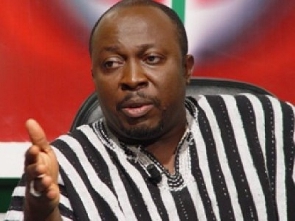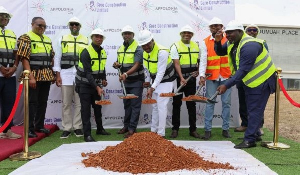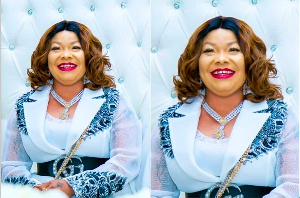By Joseph Nanor Jr.
The media has been described as the Fourth Realm of the State. Many theories have been propounded about how the media shapes the issues that are discussed and how those issues should be discussed.
Recently, history was made when Donald Trump was elected to become the 45th President of the United States of America. It beggars belief, isn’t it? Quite. The American media shaped how Donald Trump was viewed in the eyes of the world – an abuser of women, an incompetent person, a racist and the beat goes on.
Well, in spite of all the negative media reportage about Donald Trump, it didn’t wash with the silent majority of Americans; they voted massively for him – and then the whole world was stunned.
This year’s election in the Unite
d States of America (USA) took a nose dive: there’re clashes with the security agencies, attacks on political opponents, suspicions of possible rigging and refusal to accept results, and media reportage of the aftermath of Donald’s victory was marred with clashes and riots across certain states; indeed, some experts were calling for a recount of the votes. So, Americans too can lose it, right?
What kind of media reportage would we have had, had this happen in Africa? Your guess is as good as mine.
The American media was smart. They knew immediately that their nation’s image was at stake. The USA must not be reported in such bad light. Although there’d been and there’s still some chaos about Donald Trump’s victory, the media has decided to focus on the selection of his cabinet.
Yes, the media could have easily plunged America into civil war. The media determines the movement of the world – they have the power to fan flames or douse it. In the case of the American media, they swiftly and beautifully touched on the early issues rocking the election; and, as adeptly as possible, shifted the world’s attention – taking out the steam and pressure the negative stories were developing.
In short the American media kept a tight lid on the negative news and promoted the good news of a successful process of transition from one government to the other – the USA has showed the world its democratic credentials once again, so they’ll report.
Ghana goes to the polls in a matter of days. Media reportage on the events leading to December 7 and its aftermath can make or unmake us. The Ghanaian media must borrow a page or two from the American media – the international and national interest of the USA mattered most than the unsatisfied ego of some citizens.
Media pluralism in Ghana has thrived over the last decade – this is as a result of the media freedoms enshrined in the 1992 Constitution. All are working tirelessly to ensure that we get this one too done adeptly. The media is been encouraged to give a fair, balanced, truthful, and accurate reportage before, during and after December 7.
As much as it’s important to uphold the principles of media reportage, it’s equally important to take into consideration the national and international interest of Ghana. In media reportage, an issue is given prominence when the media takes it up. It gets worse when various angles of the same issue are widely reported – usually to suit the whims and caprices of the philosophy of that particular media house.
Ghana has been touted as the beacon of democracy in the sub region. The international community will be watching with keen interest. Bad news sells. Should the Ghanaian media focus on the pockets of violence that may occur at one polling station or the other; the international media can help us give our nation a bad name.
This is not a suggestion that violence shouldn’t be reported; contrary. Instead, how the media reports those issues and the kind of prominence the media decides to afford such stories. We’ve a national interest to protect, not personal interest: the Americans had a challenge, but media reportage about their electoral issues have been managed and reported with all professionalism – protecting the image of their nation.
The national and international interest of our beloved motherland must come before the parochial interest of any group of persons anywhere else.
We can borrow a page or two from the American media; there’s nothing wrong with copying, however there’s everything wrong with copying blindly.
God bless our Homeland, Ghana.
Writer's e-mail: josephnarnor@yahoo.com
Opinions of Sunday, 4 December 2016
Columnist: Nanor, Joseph
Safeguarding our democracy – lessons from American media reportage
 File photo
File photo














